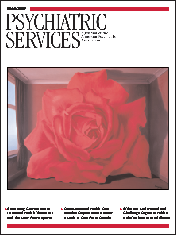Blackwell Handbook of Adolescence provides a theoretical overview and discussions of recent empirical research on adolescent development. The book is organized into five main parts, covering biological and genetic processes, the social context of adolescence, developmental patterns and processes, personal relationships, and problem behaviors. The first part discusses theories on behavior genetics, as well as pubertal processes. A very good overview is presented on adolescent physiological development. However, the chapter on behavior genetics is at times too theoretical to enable a true appreciation of this very important topic.
The chapters covering social context provide some very interesting perspectives on adolescent development, such as religious socialization and identity. A theoretical framework on the impact of family dynamics on adolescence is provided. More specifically, the authors present findings that indicate that adolescence is less of a rebellious period than a transition period for the entire family. The chapters that focus on schools as a social context, as well as the college years and career development, provide a good general overview that would be relevant to a broad range of readers, including mental health professionals, students, and those who work in the school setting.
Developmental patterns and processes are the focus of the third section of the handbook. Theories about adolescent identity development by Erikson and Marcia are presented, as is Kohlberg's theory of moral development. The chapter on emotional development does not focus on specific theories, but, rather, provides a good general introduction. The section on cognitive development focuses on inductive and deductive reasoning and on metacognition. Although the chapters on cognitive and moral development discuss relevant theoretical underpinnings, I had hoped that topics relevant to clinical practice would have been reviewed. However, this section does provide good outlines on how physiological changes, school, and parenting styles have an impact on self-concept and self-esteem.
The fourth section discusses personal relationships in adolescent development. These sections give an interesting overview of research and theories on dating, friendships, cliques, mentorship, and sexuality and can be appreciated by a broad range of readers, including clinicians and students.
The final section focuses on problems that can arise among adolescents, such as pregnancy, depression and suicide, eating disorders, conduct problems, delinquency, and sexually transmitted diseases. Risk and protective factors are discussed. However, except for an appraisal of some prevention programs, clinical treatment is not reviewed.
Overall, Blackwell Handbook of Adolescence provides a good introduction to adolescent development from a biopsychosocial perspective but does not focus on research on clinical treatment of adolescents in mental health facilities. If one wants in-depth information on a particular aspect of adolescence, each chapter is well referenced. Some chapters are better suited for those in academia, whereas others provide general reviews more relevant for a broader range of readers including mental health providers, school staff, and students.

